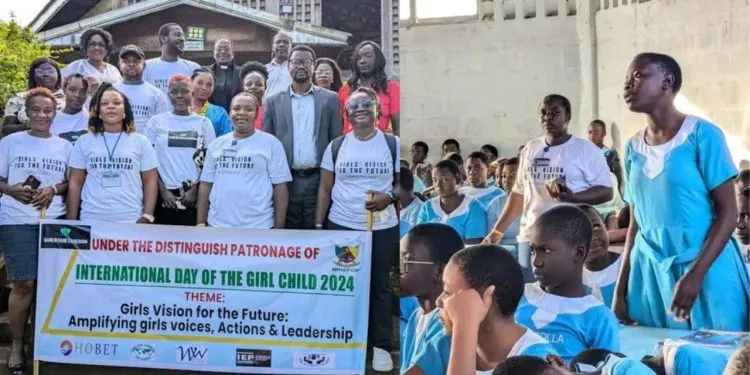Some non-governmental organisations in the Fako Division of the South West Region have called for the education of the girl child as a way of fostering equality, empowerment, and inclusion.
They made the outing recently as the world commemorated the 13th edition of the International Day of the Girl Child, which is celebrated every October 11.
This year, the theme “Girls Vision for the Future” guided the commemoration.
The NGOs carried out activities in schools, educating the girl child and letting them know of the opportunities they could dive into.
Among the NGOs are Teenalive Association and the Flickor Proriteras International.
These grassroots organisations empower girls in various activities like musicals, stage performance, and life skills to bring forth their hidden potential and showcase to the world that a girl child has great prospects, and a place in society.
According to the NGO, this year’s theme highlighted that every girl has a voice in society and that the girl child has the potential to contribute to the world’s progress.
Focus on Girls in Buea
Their activities targeted girls in Mile 14 Buea and Misselele schools, all in Fako Division.
That is why Teenalive Association and Flickor Prioriteras International, in collaboration with spoken word artist Penboy, committed their time to address these challenges.
They championed education and skills development to ensure girls have a voice and the tools to drive meaningful changes for future generations.
Another NGO that also carried out activities with girls on that day was Hope for a Better Tomorrow (HOBET).
While commemorating with students of Presbyterian Girls Secondary School in Limbe, HOBET Project Assistant, Momo Collins, said this year’s theme reminds them of the importance of building a sustainable community for girls to excel.
“We need sacrifice to empower and develop creative youths to drive positive change,” he said.
The International Day of the Girl Child focusses attention on the need to address the challenges girls face and to promote girls’ empowerment and the fulfilment of their human rights.
The observation encourages more opportunities for girls and raises awareness of the gender inequality that girls face globally.
This inequality includes areas such as access to education, nutrition, legal rights, medical care, and protection from discrimination, violence against women, and forced child marriages.
According to statistics, one in every five girls does not get to complete secondary school, and four in every 10 girls are not completing high school.
Mimi Mefo Info



